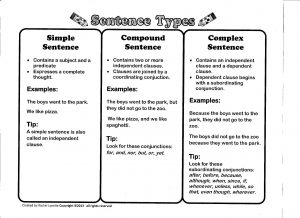نمونه سوالات اسپیکینگ آیلتس درباره آب و هوا (پارت 1 2 3)
IELTS Speaking Questions with Band 9 Answers about weather
در این بخش بیش از 20 نمونه سوال اسپیکینگ آیلتس نمره 9 از آخرین سوالات گزارش شده از سنترهای ایرانی و خارجی برگزار کننده آیلتس مربوط به پارت 1، 2 و 3 درباره موضوع “آب و هوا” را برای شما فهرست کرده ایم. در ادامه همچنین نکات گرامری، لغات و دلایل دریافت نمره 9 را توضیح داده ایم. 1000 نمونه سوالات اسپیکینگ آیلتس با جواب PDF پارت 1 2 3 پیشنهاد بعدی ما به شما عزیزان است.
نمونه سوالات اسپیکینگ آیلتس درباره موضوع آب و هوا (پارت 1)
موضوع آب و هوا از رایج ترین تاپیک ها در مصاحبه آیلتس به شمار میرود. بنابراین باید با لغات و ساختارهای ثابت مورد استفاده در این پاسخ ها به خوبی آشنایی پیدا کنیم. در اینجا 10 سوال پارت اول را با هم میبینیم. این بخش نیاز به پاسخ های خیلی طولانی ندارد و حدود 10 تا 15 ثانیه پاسخدهی برای آن معمولا کافی هست.
Questions and Band 9 Model Answers
1. What is your favorite kind of weather?
I enjoy mild and sunny weather with a light breeze. It creates a perfect balance between warmth and comfort, making outdoor activities enjoyable. This weather also lifts my mood and boosts my energy levels. I find it ideal for exploring nature, exercising, or even relaxing with a book outdoors.
2. Do you often check the weather forecast?
Yes, I frequently check the weather forecast, especially before planning outdoor activities or trips. It helps me prepare adequately, such as choosing appropriate clothing or rescheduling events to avoid adverse weather conditions. Modern apps make this task quick and reliable.
3. What is the weather like in your hometown?
The weather in my hometown is fairly diverse, with hot summers, cool winters, and pleasant spring and autumn seasons. Summers can be humid, but spring is particularly enjoyable due to blooming flowers and mild temperatures. This variety keeps it interesting throughout the year.
4. Do you enjoy rainy weather?
I appreciate rainy weather occasionally, as it feels soothing and offers a break from routine. The sound of raindrops and the fresh smell of wet earth can be quite calming. However, I prefer it in moderation, as prolonged rain can disrupt plans.
5. Does weather affect your mood?
Yes, weather significantly impacts my mood. Sunny days usually uplift my spirits and motivate me to be active, while gloomy or excessively cold weather sometimes makes me feel lethargic. However, I try to adapt and stay productive regardless of conditions.
6. What do you usually do on a sunny day?
On a sunny day, I enjoy spending time outdoors, such as going for a walk, hiking, or meeting friends at a park. It’s also a great opportunity to capture photos of nature. The bright atmosphere always makes activities more enjoyable.
7. Do you like cold weather?
I don’t mind cold weather, especially when it’s not overly harsh. It’s perfect for cozy indoor activities like reading or enjoying hot drinks. However, I prefer layering up to stay warm when going outside, as extreme cold can be uncomfortable.
8. What kind of weather do you dislike?
I dislike excessively hot and humid weather because it can be draining and uncomfortable. It limits outdoor activities and requires constant hydration. Such weather also makes commuting more tiring, which can affect productivity and overall mood.
9. Have you ever experienced extreme weather?
Yes, I once experienced a heatwave during a vacation. The temperatures were exceptionally high, making outdoor activities nearly impossible. It taught me the importance of staying hydrated, avoiding direct sunlight, and planning outings during cooler hours.
10. How do you feel about snowy weather?
I find snowy weather enchanting, as it transforms landscapes into picturesque scenes. It’s enjoyable for activities like skiing or building snowmen. However, the challenges of icy roads and freezing temperatures can make daily life difficult, so I appreciate it more as a rare treat.
نمونه سوالات اسپیکینگ آیلتس درباره موضوع آب و هوا (پارت 2)
Describe your favorite type of weather.
You should say:
what kind of weather it is
where you usually experience this weather
why you like it
and explain how this weather affects your daily life.
Model Answer (250 Words, Band 9)
My favorite type of weather is a mild, sunny day with a gentle breeze. Temperatures ranging between 20 to 25 degrees Celsius are ideal for me, as they provide the perfect balance of warmth and comfort. This kind of weather is common during spring in my region, which makes it even more enjoyable due to the blooming flowers and fresh greenery all around.
I love this weather because it energizes me and lifts my mood. The warmth of the sun coupled with the coolness of the breeze creates a refreshing atmosphere, making outdoor activities like jogging, hiking, or simply taking a walk incredibly pleasant. It also allows for versatility in clothing, where neither heavy layers nor excessive sun protection is needed.
This weather positively affects my daily life by enhancing my productivity and overall well-being. On such days, I find myself more inclined to engage in physical activities, which helps me stay healthy and reduce stress. It also encourages social interactions, as people tend to spend more time outdoors, enjoying parks or café terraces.
Moreover, mild and sunny weather fosters a sense of optimism and creativity in me. I often use these days to focus on hobbies like photography or writing, as the natural light and scenic surroundings provide inspiration. Overall, this weather brings out the best in me and creates a perfect harmony between relaxation and activity, making it my ideal choice.

نمونه سوالات اسپیکینگ آیلتس درباره موضوع آب و هوا (پارت 3)
Questions and Band 9 Model Answers
1. How does weather affect people’s daily activities?
Weather significantly impacts daily routines. For example, extreme heat might discourage outdoor activities, while heavy rainfall can disrupt commutes. Sunny weather often boosts mood and encourages outdoor recreation, while cold or gloomy conditions might lead to indoor activities. Weather also affects clothing choices, travel plans, and productivity levels, emphasizing its pervasive influence on lifestyle.
2. Do you think people’s preferences for weather vary by age?
Yes, age plays a crucial role in weather preferences. Younger people often enjoy adventurous activities in diverse weather conditions, while older individuals may prefer mild, predictable climates. Extreme conditions like heatwaves or icy winters can pose challenges for older adults, making them lean towards moderate weather for comfort and health reasons.
3. How does weather influence the economy of a region?
Weather has a direct impact on economic activities. For instance, agriculture heavily depends on favorable weather conditions, with droughts or floods affecting crop yields. Similarly, tourism thrives in pleasant climates, while extreme weather can deter visitors. Moreover, industries like energy production and construction are highly weather-dependent, making climate a key economic factor.
4. Do you think climate change is affecting weather patterns?
Undoubtedly, climate change has disrupted traditional weather patterns. Phenomena like unpredictable rainfall, prolonged droughts, and intense storms have become more frequent. These changes are consequences of global warming, driven by human activities. Addressing this requires collective efforts, such as reducing greenhouse gas emissions and promoting sustainable practices.
5. How do weather conditions impact public health?
Weather extremes, such as heatwaves and cold spells, can pose severe health risks, especially for vulnerable populations. Prolonged exposure to heat can lead to dehydration and heatstroke, while frigid temperatures increase the risk of hypothermia. Additionally, fluctuating weather can exacerbate respiratory issues, highlighting the link between weather and health.
6. How do you think people can adapt to changing weather conditions?
Adapting to changing weather requires a combination of infrastructure improvements and behavioral adjustments. For instance, cities can invest in better drainage systems to mitigate flooding, while individuals can adopt flexible clothing and routines. Educational campaigns on climate resilience can further equip communities to handle extreme conditions effectively.
7. Why do some people prefer specific weather conditions?
Preferences for specific weather are often shaped by personal experiences, lifestyles, and regional climates. For example, people living in tropical areas might prefer cooler weather for a change, while those in colder regions may enjoy warmth and sunshine. Psychological factors, such as mood improvement in sunny conditions, also play a role.
8. Do you think modern technology has made it easier to deal with adverse weather?
Absolutely, modern technology has revolutionized how we cope with adverse weather. Innovations like weather forecasting systems allow individuals to plan accordingly, while advanced construction materials provide better insulation. Additionally, smart technologies, such as automated heating and cooling systems, enhance comfort during extreme conditions.
9. How does weather influence cultural practices in different regions?
Weather deeply influences cultural traditions. For example, harvest festivals often align with seasonal changes, celebrating the bounty of nature. Similarly, winter holidays in colder regions involve activities like skiing, while warmer areas focus on water-based recreation. These customs highlight how weather shapes regional identities and festivities.
10. Do you think urbanization has impacted weather in cities?
Yes, urbanization has altered weather patterns in cities, primarily through the urban heat island effect, where concrete and asphalt retain heat. This makes urban areas significantly warmer than surrounding rural regions. Increased pollution from vehicles and industries also exacerbates weather-related issues like smog, further affecting urban climates.
Explanation of Band 9 Factors
Grammar:
- Complex Sentence Structures: Use of conditional sentences (e.g., “If cities invest in drainage systems, flooding can be mitigated”) and relative clauses (e.g., “where concrete and asphalt retain heat”).
- Passive Voice: Effective use in sentences like “These changes are consequences of global warming.”
- Accurate Tenses: Precise use of present, past, and future tenses to convey nuanced ideas.
Vocabulary:
- Precise Terminology: Terms such as “urban heat island effect,” “respiratory issues,” and “climate resilience” demonstrate specificity.
- Collocations: Phrases like “adverse weather,” “prolonged droughts,” and “behavioral adjustments” enhance naturalness.
- Idiomatic Expressions: Use of phrases like “pose severe health risks” and “revolutionized how we cope” add fluency.
Coherence and Cohesion:
- Logical Flow: Answers are well-organized with clear ideas and examples supporting each point.
- Linking Words: Effective use of connectors like “however,” “moreover,” and “for instance” ensures smooth transitions.
By integrating advanced grammar, rich vocabulary, and coherent structures, these responses meet Band 9 criteria.
تعیین سطح رایگان اسپیکینگ ❤️
نمونه سوالات اسپیکینگ آیلتس درباره موضوع آب و هوا پارت 1 2 3 را به همراه سمپل های نمره 9 آن ها با هم دیدیم. در ادامه نمونه سوالات دسته بندی شده اسپیکینگ آیلتس پیشنهاد آخر ما به دوستان گرامی هست. این نمونه سوالات اسپکینگ از پرتکرار ترین تاپیک های این بخش و همچنین جدیدترین موضوعات می باشند. این مجموعه توسط یکی از سایت های معتبر و فعال آیلتس تنظیم شده است. همچنین برای تعیین سطح و تعیین رایگان نمره اسپیکینگ و دریافت جدید ترین سمپل های نمره 9 در کانال تلگرام اسپیکینگ ما همراه باشید و به ادمین برای تعیین نمره اطلاع دهید.






